
Rev Dr Keith Albans explores some ‘items for our AGE-enda to help us work at growing old’
Adapted from a talk given by Keith at our event on 26th April 2022 at Wheeler Hall, Leeds.
Although the mountaineer and the downhill skier share a similar setting for their activities, and have a common objective of reaching the bottom of the mountain safely and in one piece, the shape of those challenges is entirely different. For the climber, reaching the summit’s the primary goal – marked with photographs and smiles, with the bonus of planting a flag or adding a stone to a cairn. On the other hand, the skier’s ascent is merely a means to an end – usually assisted by a cable car or ski-lift – with the main purpose being to get down again as quickly as possible.
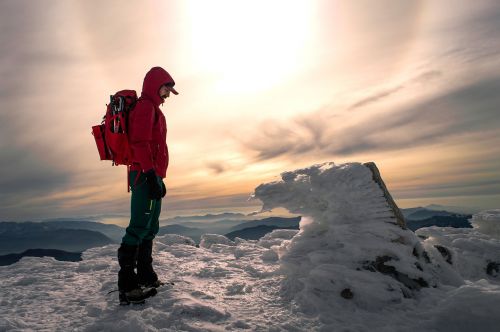
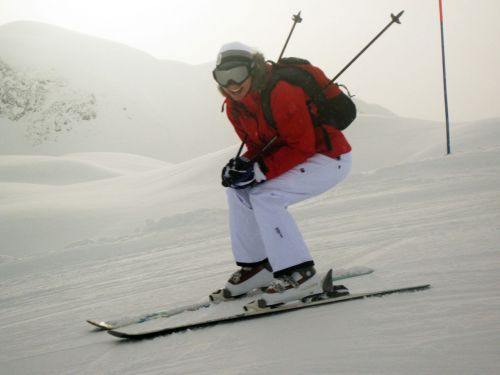
Many seem to live with a similar image of the human lifespan, with the first part being concerned with gaining skills, strength and potential, and the second part – literally ‘over the hill’- being spoken of in terms of multiple losses, most notably loss of strength and potential.
Kenneth Howse expressed it like this: “We think of human powers and capabilities as following a parabolic trajectory through the life course: eventually they stop climbing upwards and take a downward turn.” However, as he continues, “If there is a dimension of life which stands apart from this pattern of change, it is the spiritual dimension,” and Richard Rohr’s choice of book title was Falling Upwards: A Spirituality for the Two Halves of Life, the imagery of being over the hill needs closer examination.
For an elite athlete, the progression through their career is likely to have this shape, and for them retirement will be brought on by an inability to perform in the way they once did. Some choose to go out at the top, while others linger into the twilight.
I recall Steve Davis, the former snooker world champion, said he relished the challenge of pitting his skills and experience against the younger opponents making their way in the sport.

He didn’t expect always to win, or even to perform in the way he once had, but instead to discover a new sense of purpose and a new measure of performance.
Later life requires this kind of approach if it’s not simply to be seen as a falling away from what once was.
In 1933 the psychiatrist Carl Jung wrote,
“One cannot live the afternoon of life
Carl Jung
according to the program of life’s morning;
for what was great in the morning
will be of little importance in the evening,
and what in the morning was true
will at evening have become a lie.”
More recently Marie de Hennezel put it like this, “We still have to construct a more positive image of this time of life, confront our fears in order to overcome them, and work out a real policy for preventing unhappy old age. Lastly, it is up to us to combat the denial of old age and death, by working at growing old.”
So if we’re to make the best of the view as we travel ‘over the hill’ what might we put on our spiritual AGEnda that will help us work at growing old?
1. Open-ness – being real
‘Combat the denial of old age and death’ – most advertising to elders majors on denial – by covering up the effects of ageing, or promoting a sense of escapism!
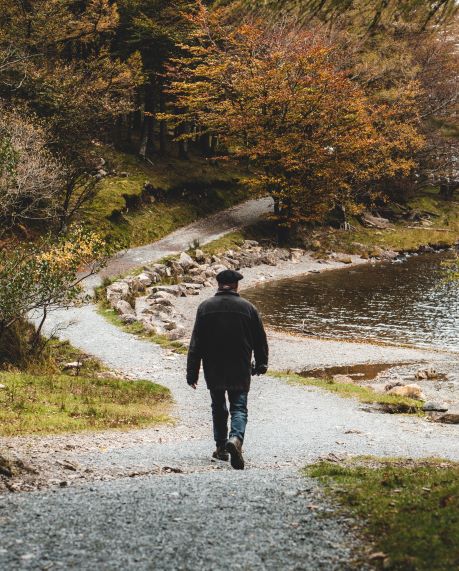
But to best enjoy the view, being real about the stage of life we are at seems fundamental. Recognising that some hopes can no longer be realised – (for instance, I will never open the batting for England !) – does not mean new dreams cannot be envisaged, worked at and experienced…
In addition, encouraging open conversations with those who are accompanying us on our later life journeys is something we can do… It can be hard for family members to come on board – but they can take their lead from us… this can be true especially around end-of-life issues and ‘the will’!
2. Unfinished Business
‘Regrets, I had a few… but then again too few to mention’ – but you just did!
None of us are likely to have got to the period called ‘later life’ without having incurred hurts and sorrows or, equally, without having trodden on a few toes here and there. Of course not everything can be ‘undone’ – but some hurts can be healed – and ‘before it’s too late’ is a helpful watchword.
Unfinished business also includes the things as yet undone… This is the extension of ‘new dreams’ and – to extend the analogy – the task of ‘making new memories’, which is so important. The ‘over the hill journey’ is not just about remembering times past – the journey itself becomes the stuff of memories…For example, at a party for Charlotte’s 110th birthday, she commented that she had not had a passport until she was 100!
3. Encouraging Reflection & Depth
I mentioned Richard Rohr earlier. In his book Falling Upwards he writes this: “while the task of the first half of life is to create a proper container for one’s life, the task of the second half of life is to find the actual contents that this container was meant to hold and deliver.”
It’s another way of saying what Kierkegaard said: “Life can only be understood backwards; but it must be lived forwards.”
He also said: “Life is not a problem to be solved, but a reality to be experienced.”
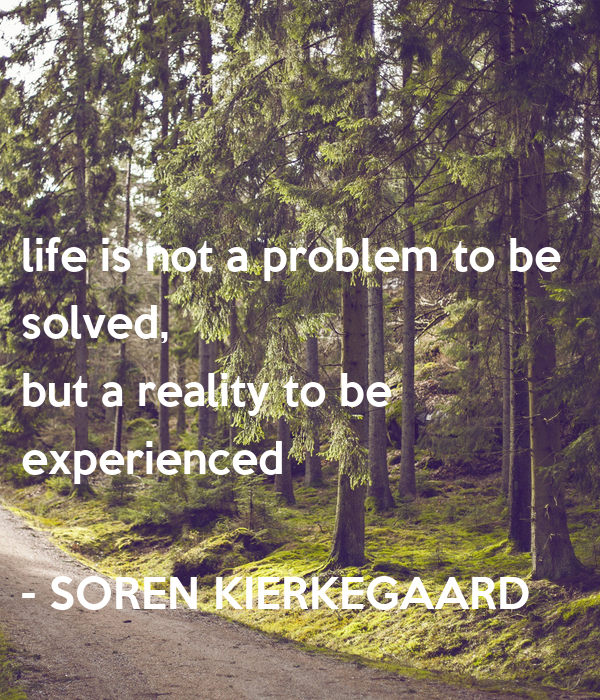
Part of experiencing the ‘over the hill’ journey, if it is to be as full an experience as possible, has to include some reflection on what has gone before – that will arise from sorting our unfinished business anyway – but arriving at a sober understanding of what has been – and something of what it has been about – is important. As a Minister in the Methodist Church, I reflect on what it has been about and ask Whither the Church? Whither the Kingdom?
This is reflected somewhat in this quote: “We all dimly feel that our transient historical identity is the only chance in all eternity to be alive as a somebody in a here and a now. We, therefore, dread the possibility, of which we are most aware when deeply young or very old, that at the end we may find that we have lived the wrong life or not really lived at all.” Erik Erikson
4. Landmarks – celebrations/marking them
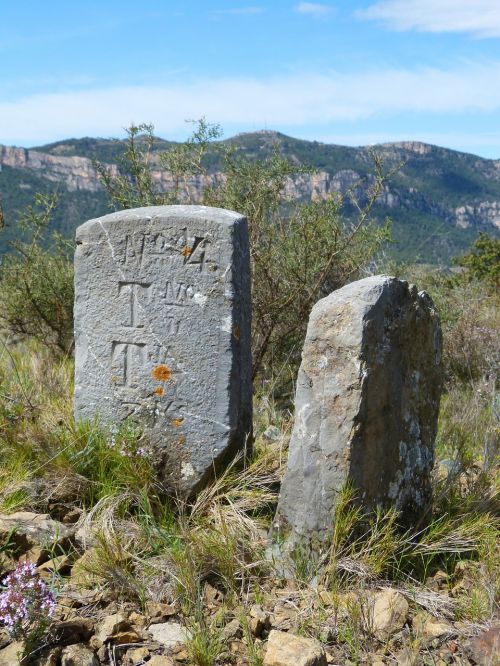
Some may say ‘Any excuse for a party!’ Marking transitions is important and so is noting the milestones, such as reaching State Retirement age, or having lived 24000 days (as I did a few months ago) or 3 billion seconds (my Mum has recently achieved this). The journey uphill is marked by staging camps and so too is the journey down again, so we should take the time to stop and look around.
5. Intergenerational Community
When I retired I moved to live next door to my grandchildren! Brilliant move! But more than that – having awareness of the generation above and those below is another part of making sense of the ‘over the hill journey’. Being on touch with elders while you can… being available to those below too… It makes the journey a community and a communal event – “it’s not just about me!”
6. Maintaining Connection
In retiring and moving house, I was well aware of the connections that I cut. As a minister some of those were inevitable and right, and in the first few months there were many things which I rightly avoided as I tried to adjust to a new place and a new way of being me.
But maintaining connections in a changing world, a changing church, and a changed location are vital – especially to ward off loneliness, bitterness and a “it wasn’t like this in my day” attitude.

That’s my AGEnda – I am sure there are other things we could add – but the point outlined by Marie de Hennezel is the key – working at growing old, crafting what you can, repairing what you can, making sense of what you can.
I have never found the source of this final quotation – or indeed who Michael Guilford, to whom it is attributed, is! But I’m sure he is/was right.
“The only people who are old are those who think
they have learnt all they need to know
and have given up discovering.
For the rest of us, each day reminds us of our ignorance
and needles us towards discovering more,
about ourselves and about life and death.”
Keep being needled – and make the most of the journey!
Rev Dr Keith Albans, April 2022.
